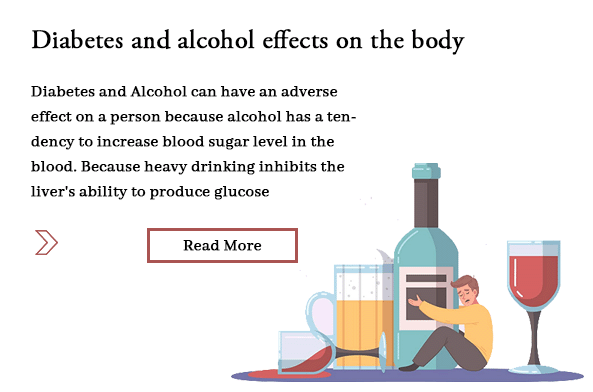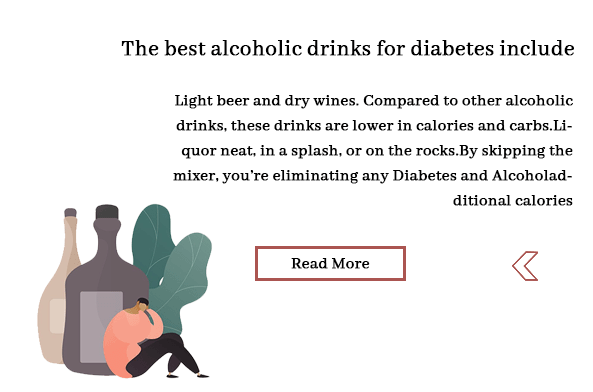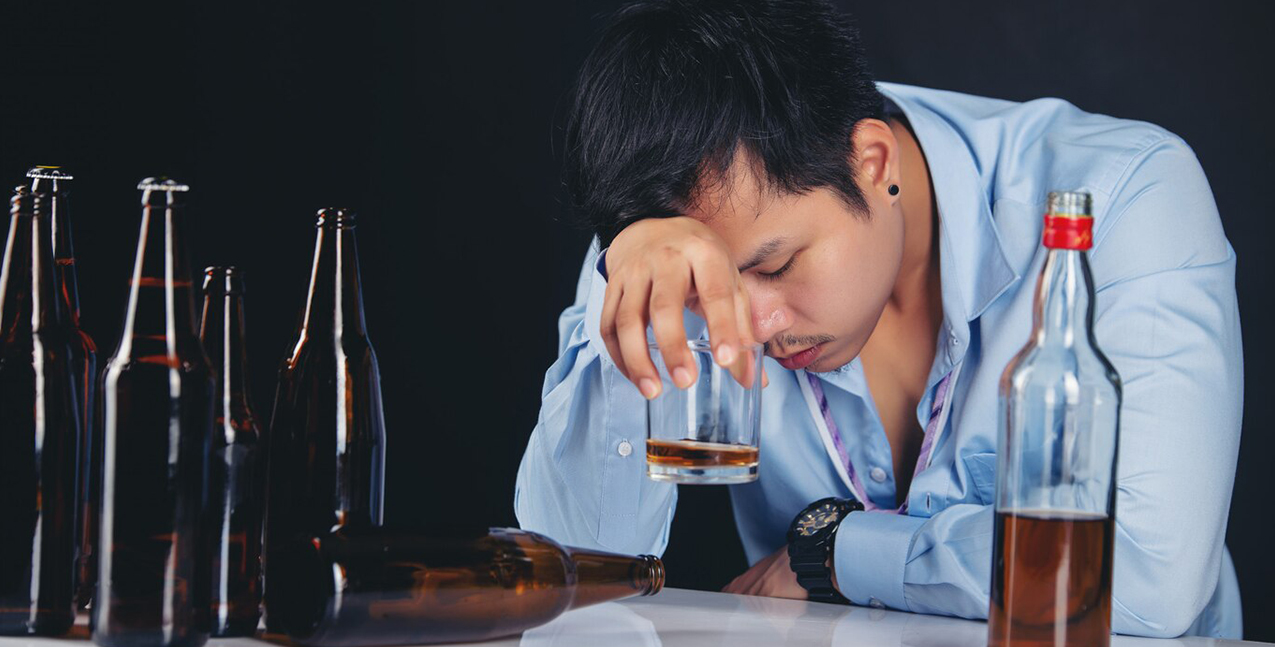Diabetes and Alcohol is a common, life-long condition that occurs when the pancreas doesn’t produce enough insulin or the insulin it does produce doesn’t work properly. Insulin is a hormone that facilitates the uptake of glucose into cells for energy production from the bloodstream. When you have diabetes, glucose accumulates in the blood rather than entering your cells because your body is unable to properly utilize it.
Diabetes is a treatable illness. However, if left untreated, it can lead to major health issues like heart disease, stroke, kidney disease, blindness, nerve damage, and amputations.

There are two types of Diabetes
Type 1 diabetes arises when the pancreatic cells that produce insulin are destroyed, making it impossible for the body to produce enough of the hormone. Most people with this kind of diabetes are diagnosed before they turn 40. Type 1 diabetes is the rarest kind, accounting for just 10% of cases worldwide.
Diabetes type 2 occurs when the body becomes resistant to insulin or when it can still produce some insulin, but not enough. People are overweight and inactive. People with lots of fat around the abdomen have a greater risk of developing type 2 diabetes.
Patients on insulin treatment for diabetes can develop abnormally low blood sugar levels. This is known as hypoglycaemia.
Symptoms of hypoglycemia include: Slurring words, headache, confusion, double vision and abnormal discomfort.
Diabetes and alcohol effects on the body
Diabetes and Alcohol can have an adverse effect on a person because alcohol has a tendency to increase blood sugar level in the blood. Because heavy drinking inhibits the liver’s ability to produce glucose when consumed on an empty stomach, heavy drinking can also raise the risk of hypoglycemia.
Diabetes and AlcoholIf you have nerve damage as a result of diabetes, drinking alcohol can make it worse and increase the pain, tingling, numbness and other symptoms.
If you do decide to drink, do it in moderation. No more than two servings should be consumed daily by men with diabetes. The kind of alcohol you choose to consume will determine how it affects your health. Drinks vary greatly in how they impact your body if you have diabetes. The way that different people react to alcohol varies as well.
Each alcoholic beverage takes between 1 to 1.5 hours to process through the liver. Many alcoholic beverages such as beer, wine, and mixed drinks contain carbohydrates, which will quickly increase your blood sugar.
The best alcoholic drinks for diabetes include:
Light beer and dry wines. Compared to other alcoholic drinks, these drinks are lower in calories and carbs.
Liquor neat, in a splash, or on the rocks.By skipping the mixer, you’re eliminating any Diabetes and Alcoholadditional calories or carbohydrates and limiting the effect your drink will have on your blood sugar.
Sugar-free mixers for mixed drinks. Try club soda, seltzer, lemon or lime juice, and diet tonic. Your blood sugar won’t rise if you use these mixers.
Things to Keep in Mind: If you use insulin to lower your blood sugar while drinking, exercise extreme caution and moderation. Check your blood sugar on a regular basis.
When you drink alcohol, have a carbohydrate-rich meal or snack.
Remember to keep glucose tabs or other fast-acting glucose with you at all times.
Consider going to bed with a blood sugar higher than normal if you’ve been drinking. Keep in mind that the drop in Blood Glucose is often delayed and you’ll want to keep it extra safe when sleeping

Alcohol can make it hard to notice symptoms of low blood sugar. Check your blood sugar often. Check more often than you think you need to.
If you want to drink, check with your doctor first to make sure any alcohol is safe for you. Be cognizant of what is in whatever you are drinking.

